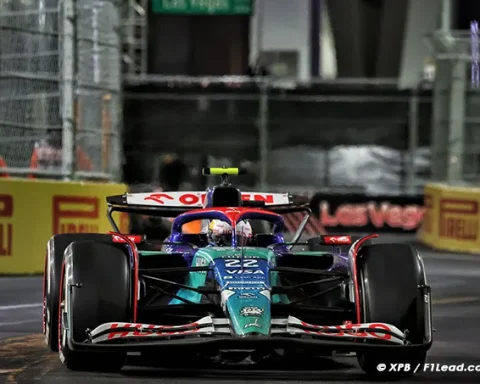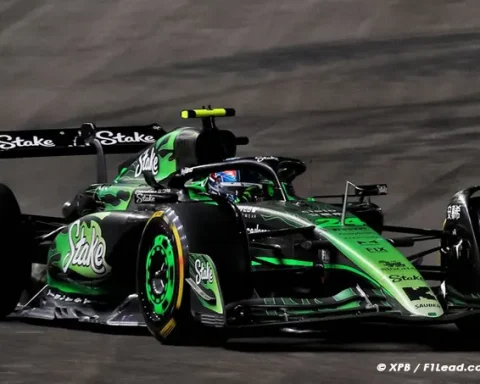The FIA’s new material restrictions for the 2026 F1 season aim to reduce costs and prevent unethical practices, without hindering engineering innovation, say Mercedes and Ferrari’s technical directors.
The FIA has decided to restrict the use of certain materials in Formula 1, with the list of banned substances increasing for the 2026 regulations, including beryllium. James Allison, the technical director of Mercedes F1, believes this is beneficial for cost control and to eliminate unethical practices.
“The sport faces a dilemma regarding materials. Developing new materials is very, very expensive. So, if we all invest in researching a material that isn’t generally available, it will eventually become accessible to everyone,” explains Allison.
“And all we will have done is increase the base costs of the sport. But there won’t be any relative competitiveness during this time. Therefore, it makes sense to restrict the playing field. It also makes sense to restrict materials that have excellent technical properties but are very toxic, for example.”
“We don’t really want to make cars from such materials, even if they are fast. So, having this list is logical, but it means working in a narrower field for material innovation.”
“Nevertheless, the work continues, as there is a mechanism to introduce materials into this list if it becomes evident that the world has found materials useful to F1 that we wouldn’t have to develop ourselves because the world has done it for us, and we could import them to improve the cars.”
This doesn’t limit development: “Within the restricted materials list, there is still room for optimisation and ensuring you choose the right material for the right task, and this is primarily the playing field we all operate in.”
“It doesn’t limit engineering at all.”
Enrico Gualtieri, the technical director of Ferrari’s engine department, agrees with the Mercedes engineer, stating that it is beneficial to have these bans in place to limit costs without stifling research and development.
“I couldn’t have said it better than James. But anyway, no, it’s exactly as he said. And honestly, regarding the power unit, we’ve proceeded in the same manner for the 2026 regulations,” the Italian explains.
“And I completely agree with James. Ultimately, restricting the materials list is a good thing considering the budget cap we face for 2026 regarding the powertrain.”
“But this doesn’t limit engineering’s ability to find, within this constraint, the properties and characteristics of the material we can use for our design. That’s exactly what we’re working on.”

F1 Material Restrictions: Boost or Bust?. F1 Material Restrictions: Boost or Bust?
- You may also like>Kyalami Blames Russia Ties for F1 Return Failure Intro
- Following us on Facebook and Twitter










